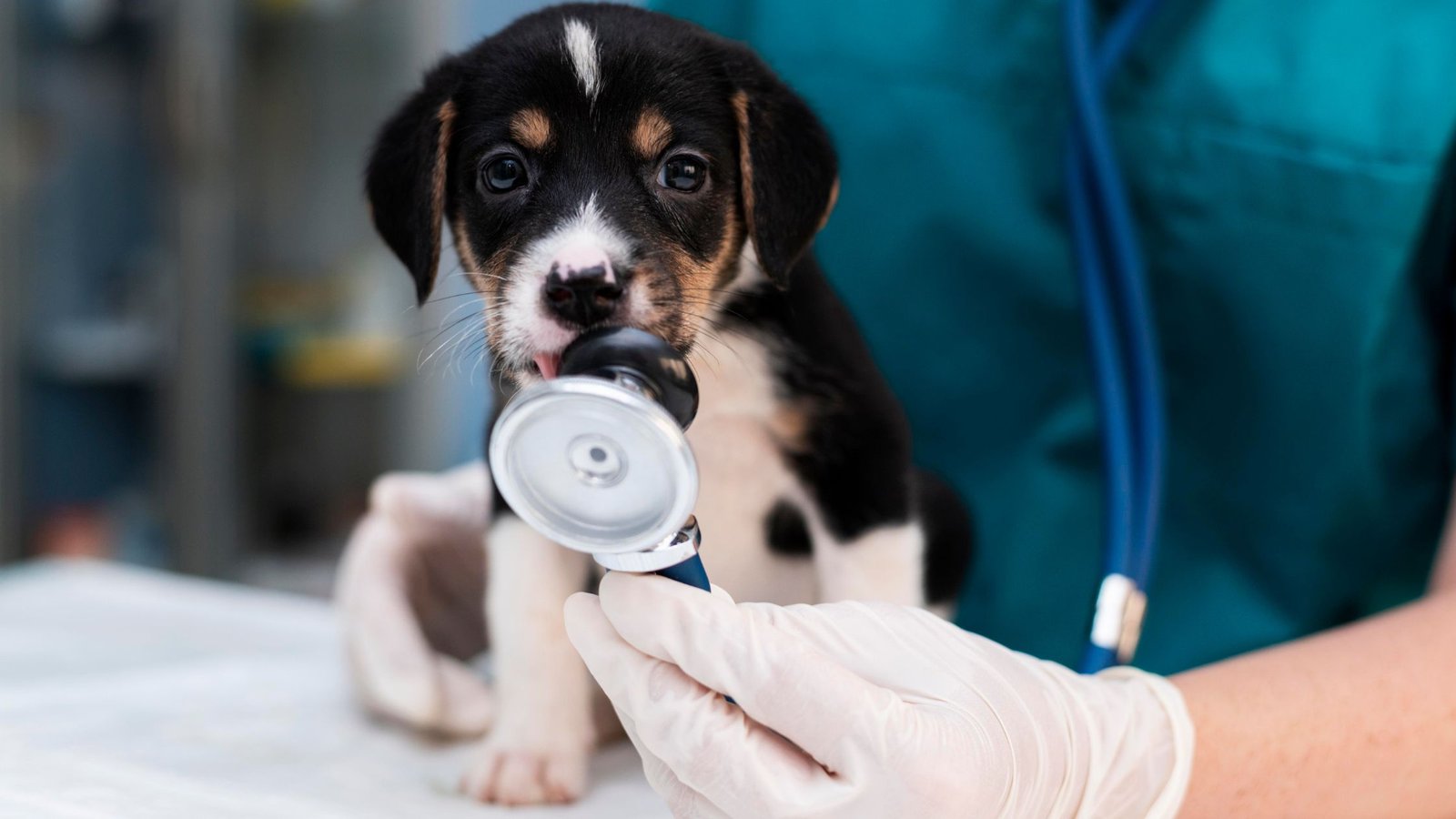Dogs are wonderful companions that can bring joy and happiness to our lives, but they can also get sick and suffer from various dog diseases that can affect their health and well-being. As a responsible dog owner, it is important to recognize the signs and symptoms of most common dog diseases and seek veterinary help as soon as possible.

MOST COMMON DOG DISEASES AND HOW TO TREAT THEM
In this article, we will cover the most common dog diseases, their causes, their treatments, and how to prevent them.
Ear Infections are One of the Most Common Dog Diseases
One of the most common dog diseases, especially in dogs with floppy ears or long hair. Ear infections can be caused by bacteria, yeast, fungi, parasites, allergies, or foreign objects in the ear canal.
Signs and Symptoms of Ear Infections in Dogs
- Scratching or rubbing the ears
- Shaking or tilting the head
- Redness or swelling of the ear flap or canal
- Discharge or odor from the ear
- Pain or sensitivity around the ear
- Loss of balance or hearing
Ear infections can be treated with ear drops, cleaning, and antibiotics if needed. To prevent ear infections, you should check your dog’s ears regularly and keep them clean and dry. You should also avoid plucking or trimming the hair inside the ear canal, as this can create a moist environment for bacteria to grow.

Diarrhea in Dogs
Another most common dog disease that can have various causes, such as food intolerance, infection, poisoning, stress, or inflammatory bowel disease. Diarrhea can be acute (lasting less than a week) or chronic (lasting more than a week).
Signs and Symptoms of Diarrhea in Dogs
- Loose or watery stools
- Frequent or urgent defecation
- Blood or mucus in the stools
- Dehydration or weight loss
- Vomiting or loss of appetite
- Abdominal pain or discomfort
This can be treated with fluid therapy, bland diet, and medication if needed. To prevent diarrhea, you should feed your dog a high-quality and balanced diet and avoid giving them table scraps, bones, or spoiled food. You should also make sure your dog has access to clean water and avoid exposing them to stressful situations.

DOG VOMITING
Symptom that can indicate various digestive problems, such as food intolerance, infection, poisoning, or obstruction. The dog vomiting can be acute (occurring once or twice) or chronic (occurring more than twice in 24 hours).
Signs and Symptoms of Dog Vomiting
- Regurgitation or expulsion of food or fluid from the mouth
- Nausea or drooling
- Dehydration or weight loss
- Lethargy or weakness
- Abdominal pain or discomfort
This can be treated with fluid therapy, bland diet, and medication if needed. To prevent vomiting, you should feed your dog small and frequent meals and avoid giving them table scraps, bones, or spoiled food. You should also make sure your dog does not eat too fast or too much and avoid exposing them to stressful situations.
Arthritis in Dogs
Degenerative joint disease that affects many dogs as they age. Arthritis can be caused by injury, infection, immune system disorders, obesity, or genetic factors. Arthritis can affect any joint in the body, but most commonly affects the hips, knees, elbows, shoulders, and spine.
Signs and Symptoms of Arthritis in Dogs
- Stiffness or lameness in one or more limbs
- Difficulty getting up or lying down
- Reduced mobility or activity level
- Swelling or warmth around the joints
- Pain or sensitivity around the joints
This can be treated with painkillers, anti-inflammatory drugs, supplements, physical therapy, acupuncture, or surgery depending on the cause and severity of the disease. To prevent arthritis, you should keep your dog at a healthy weight and provide them with regular exercise and a balanced diet. You should also avoid overexerting your dog or exposing them to cold or damp conditions.

DOG CANCER
One of the most common dog diseases, and it can be deadly if not treated quickly. Cancer is an abnormal growth of cells that can invade and destroy normal tissues and organs. Cancer can affect any part of the body but most commonly affects the skin lymph nodes, mammary glands , spleen , liver , bone , and mouth.
Signs and Symptoms of Cancer in Dogs
- Lumps or bumps on the skin or under the skin
- Sores that do not heal
- Weight loss or loss of appetite
- Bleeding or discharge from any body opening
- Difficulty breathing, urinating, or defecating
- Pain or discomfort in any part of the body
Cancer can be treated with surgery, chemotherapy, radiation, immunotherapy, or a combination of these methods depending on the type and location of the cancer. Make sure to take your dog to the vet early if they show any signs or symptoms of this dog disease.
We suggest to read the full article with all information about cancer in dogs.

HOW TO PREVENT MOST COMMON DOG DISEASES?
Provide your dog with regular veterinary care, including vaccinations, deworming, flea and tick prevention, and dental care. Feed your dog a high-quality and balanced diet that meets their nutritional needs and avoid giving them table scraps, bones, or spoiled food.
More Tips on How to Prevent Most Common Dog Diseases
Provide your dog with clean water and a comfortable shelter that protects them from extreme weather conditions. Provide your dog with regular exercise and mental stimulation that suits their age, breed, and personality. Groom your dog regularly and check their ears, eyes, mouth, skin, and nails for any signs of problems.
To prevent unwanted pregnancies and reduce the risk of certain diseases make sure to spay or neuter your dog. Socialize your dog from an early age and expose them to different people, animals, and situations in a positive way. Train your dog with positive reinforcement and avoid using harsh or abusive methods that can cause fear or aggression. Love your dog and give them plenty of attention and affection.
Final Thought on How to prevent most common dog diseases
Dogs are prone to various diseases that can affect their health and well-being. Important to recognize is the signs and symptoms of common dog diseases and seek veterinary help as soon as possible. You can treat your dog’s diseases effectively and prevent them from occurring in the first place.
Remember that prevention is better than cure and that your dog’s health depends on you!









